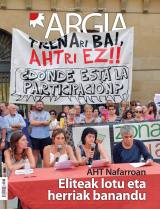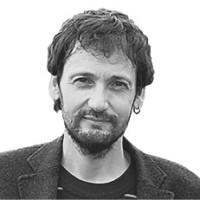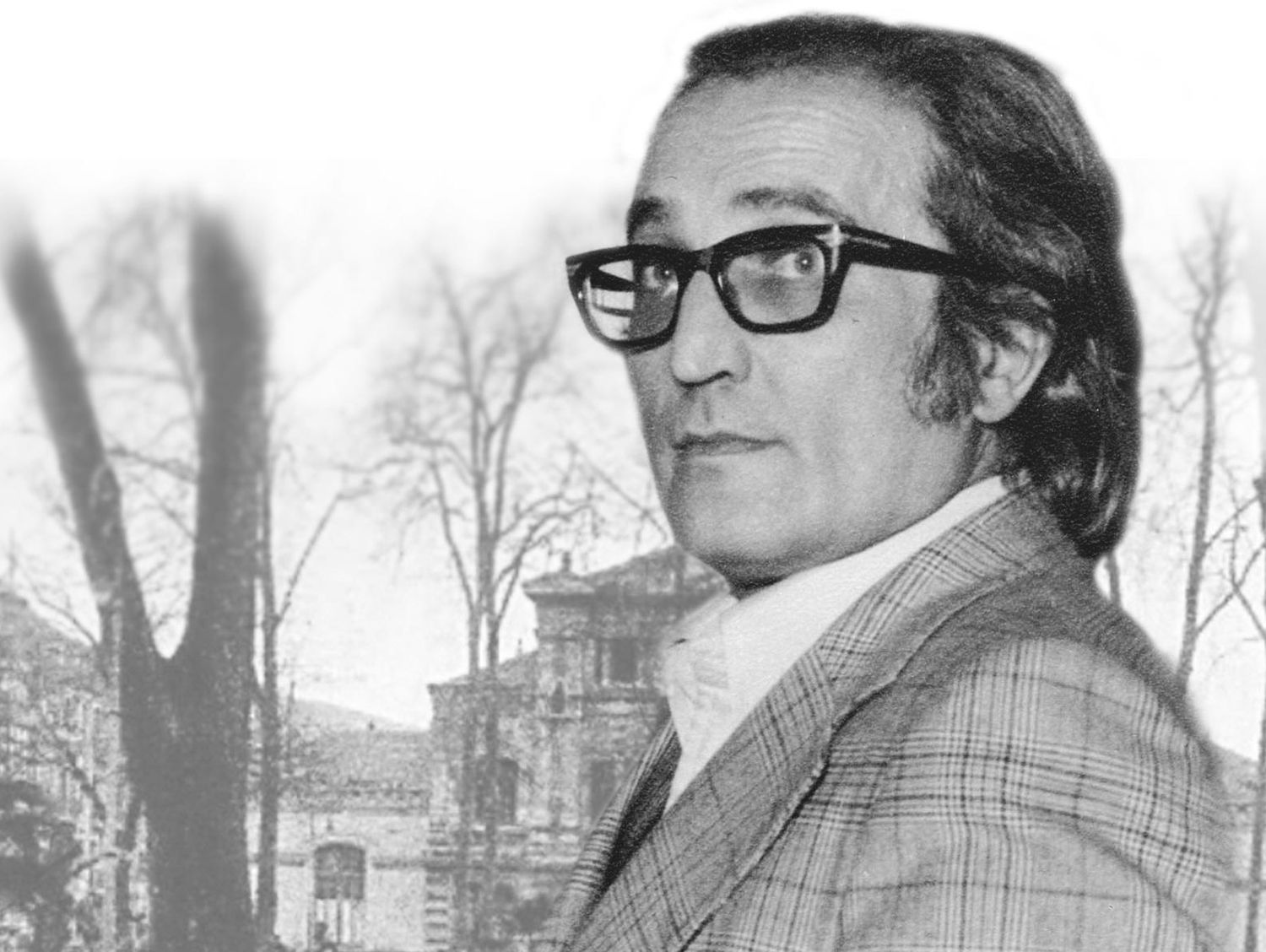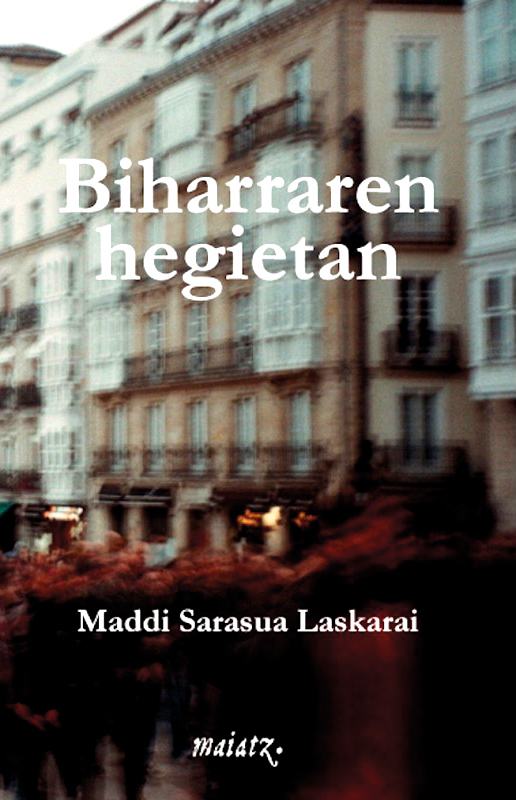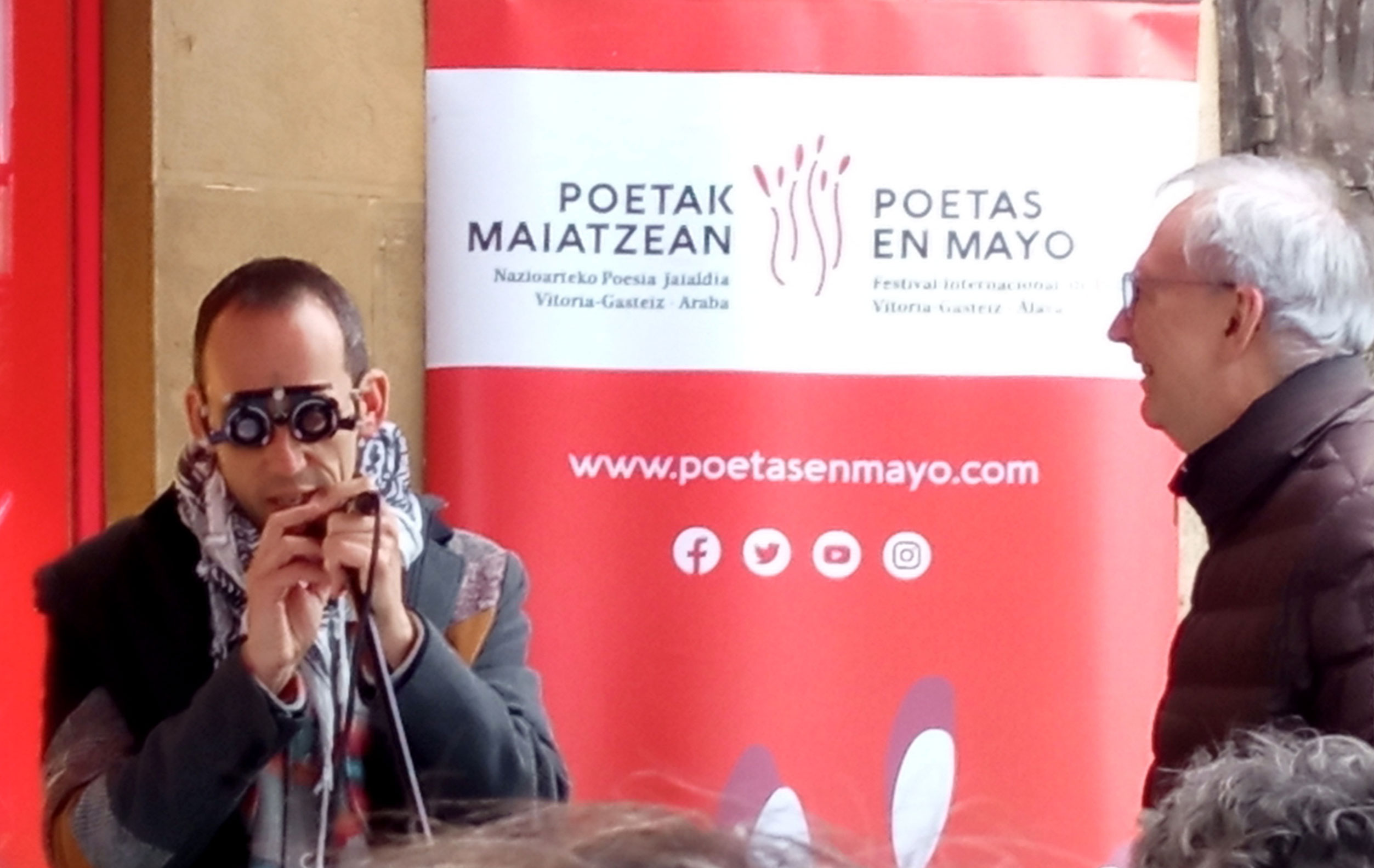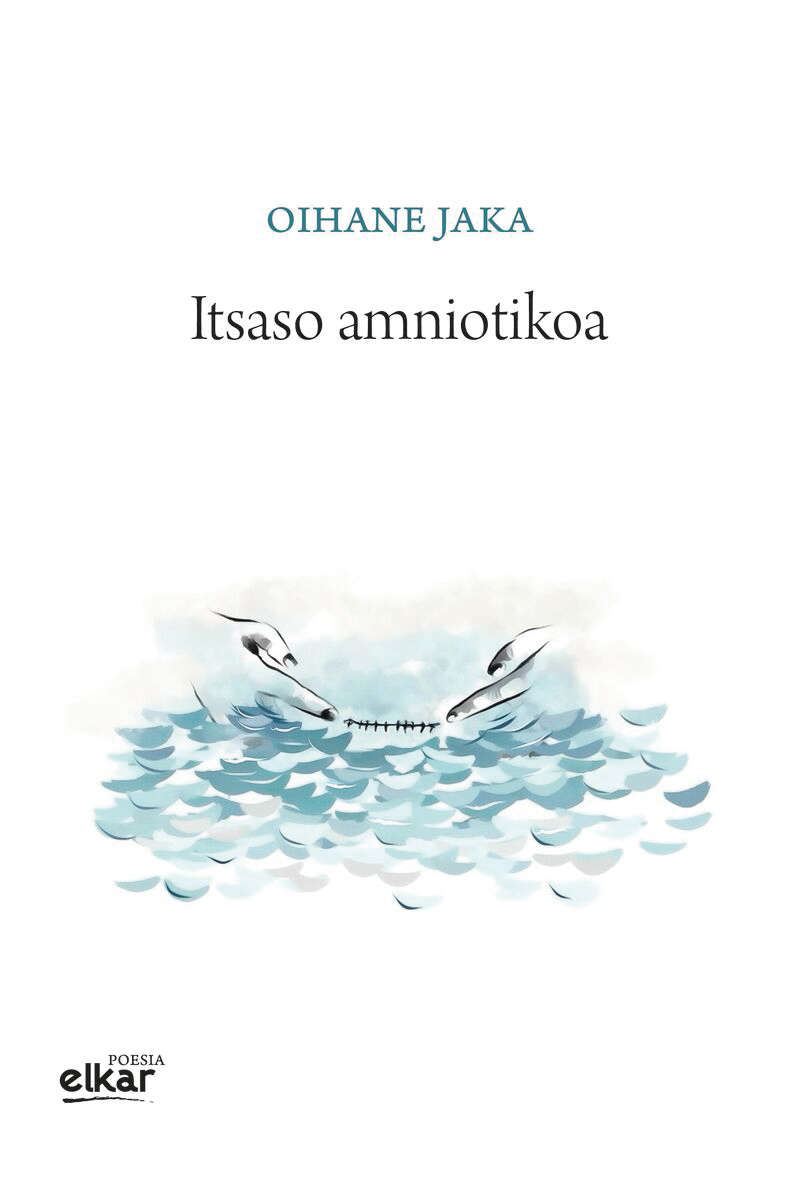Poets of great personality
- Chronicle of the Autobiographikal performance. Where: In the gaztetxe Putzuzuzuzulo de Zarautz. When: 12 November 2017. Protagonists: Ane Zubeldia and Eider Pérez.

It is Sunday and it has been done night at 6.30 p.m. We carry our hands in our pockets, yelling, “Fuck, how cold!” One of us said it was at 6.30 p.m. the function that had begun at 7.30 p.m., and if we had known that we would be waiting, we would not have taken such a rapid step between the collapsed buildings bordering Baluarte.
It wasn't my first time, I confess. Yes, it was true that I stepped the well (I was not lacking in enthusiasm), but it was not the first time I saw Autobiographikal. It's what's known as poetry theater. And the poetry theater. A show created by two people in the university environment of Vitoria-Gasteiz. Two friends walking along the edges of literature. They once stood on the radio and said, “If you’re not in the world of literature, it’s hard for you to create something.” They're Ane Zubeldia and Eider Pérez, and they love poetry.
We've put ourselves in the red Mahou plastic chairs, without removing the coats, and the performance has started. Those of us who are in the previous darkness have given us instructions – as in bertsos, for example, to applaud ourselves after each poem. They say that “great poets” come, that they have taken their poems, molded them, translated them, made them their own. Because the voices of women poets on the shore are also the women themselves who make them their own, hence the title. To do so, the interrogation of who they are, what they believe, if poetry recitals are not fashionable has begun. Pérez: And who are you to ask me so many questions? Damn it be: Me? Self-criticism.
The scene is full of voices and bodies. And they've done it with strength, freshness, no complexes, warm and salty. That tone has made me follow the show with a small smile. It's divided into three blocks: mirrors, newspapers, bones; and music helps expand each. In time, Safo and Itxaro Borda, of Lesbos, and Kathmandu, of Banira Giri, were in charge of cutting the poem with Euskal Herria. They remember the hysterical women and they rescue some terrible lines from Alejandra Pizarnik's everyday life. Small comments and recommendations on poets have interspersed, and I have the feeling that the show is going up like a newly served foam. So, the most intense thing for me is the last, the most osseous thing. In the Eskapan of Mari Luz Esteban, Some poets of Gioconda Beli, A council to the women of Eunice de Sousa, Dibisa de María Merce Marçal and Vienes made by Cristina Pérez Rossi. The latter has been screamed in the back of the listeners and I picked it up as a kick in the chest.
A year ago I saw her for the first time, and I am very glad to hear that the function has been moving. I was told that it wasn't the same, that some things have changed. And I say that the first time I had cooled a little more. The hands in the pocket, the echoes of the big poems in the skull, when we've taken the path for the train that will take us home.
Istorioetan murgildu eta munduak eraikitzea gustuko du Iosune de Goñi García argazkilari, idazle eta itzultzaileak (Burlata, Nafarroa, 1993). Zaurietatik, gorputzetik eta minetik sortzen du askotan. Desgaitua eta gaixo kronikoa da, eta artea erabiltzen du... [+]
Entrepreneurship is fashionable. The concept has gained strength and has spread far beyond economic vocabulary. Just do it: do it no more. But let us not forget: the slogan comes from the propaganda world. Is the disguise of the word being active buyers? Today's entrepreneurs are... [+]
Spring is usually a promise of a cold winter nose that can come after the landing, and has been annotated several times for sleep. Promise, however, is never a safe spring in a ruined terrain. Not at least if we are talking about change or, in particular, revolution. Maddi... [+]
We opened the poems book by Oihana Jaka and found two deals. One father and another son. It is worth noting for its direct relationship with the poems we will find. The book is structured in three parts:
Hamaika urte, Hamaika hilabete eta Hamaika egun. Number eleven is also... [+]
Yolanda Castaño has been interviewed since she received the Spanish National Poetry Prize. The head of a row from one of them caught my attention because he said the second hardest thing he's ever done is win the prize. And I immediately began to look for what was the hardest... [+]
A few years ago, I wrote a little book about Tene Mujika, which is called Udazken Argitan. When I started doing that biographical essay, I met our protagonist today, Mr. Watson Kirkconnell. In 1928, Kirkconnell published a nice book of European Elect anthology, which included... [+]
I do not remember who I heard that at the end of the month you can only write poetry, if poetry is not your way to the end of the month. Poetry, fortunately or unfortunately, has always been on the periphery of the literary system and the cultural industry. In any case, poets... [+]







